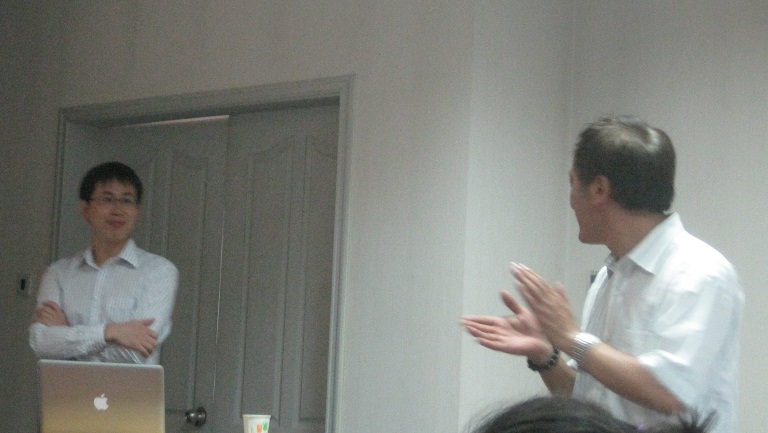清洁能源实验室学术报告(八) 2011-6-7

报告时间: 2011年6月7日(星期二)上午 9:30 – 11:30
报告题目:Factors Influencing the Efficiency of Sensitized Solar Cells.
报告人: 王庆 新加坡国立大学
报告摘要:
Dye-sensitized solar cells (DSCs) using mesoscopic TiO2 as photoanode currently present a credible alternative to conventional solar cells. The validated overall solar to electric power conversion efficiency has now reached a value close to 12% under standard AM 1.5 illumination conditions. This talk will focus on our recent advances in the fundamental understanding of charge separation and charge collection — the two crucial, efficiency-determining processes, as relevant to DSCs. The predicted effect of sensitizer regeneration on the J-V characteristics of DSCs will be discussed and recent experimental results will be highlighted. Problems surrounding the experimental determination of electron diffusion length in dye-sensitized solar cells will be addressed, together with the physical interpretation of this quantity and its usefulness in predicting charge collection losses in working dye-sensitized solar cells. In addition, evolution of charge separation and charge collection upon prolonged aging test and their effects on the stability of DSCs will be discussed in a case study. It is anticipated that these results will help us to have a better understanding on the factors dictating the operation of DSCs for more efficient and more stable solar energy conversion.
报告人简介:
Dr. Qing Wang is an assistant professor at the Department of Materials Science & Engineering, National University of Singapore (NUS). Currently he is leading a group at DMSE/NUSNNI-NanoCore to conduct fundamental studies on the frontiers of “Charge Transport in Mesoscopic Energy Conversion and Storage Systems”. He obtained his PhD of condensed matter physics at Institute of Physics, Chinese Academy of Sciences. Before joined NUS, he has been working with Prof. Grätzel at Swiss Federal Institute of Technology (EPFL), and Dr. Arthur Frank at National Renewable Energy Laboratory (NREL) in the fields of nanostructured solar cells since 2002.
